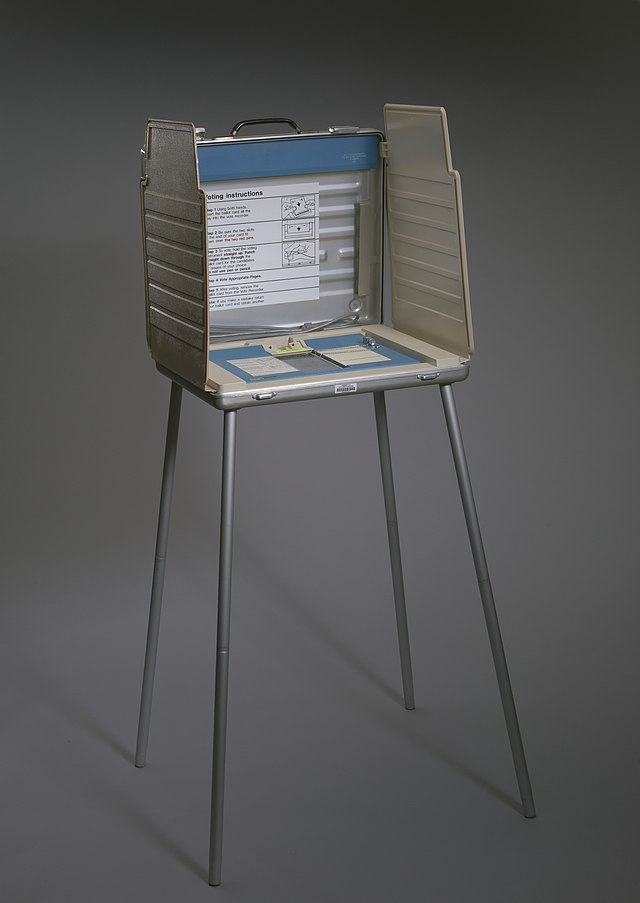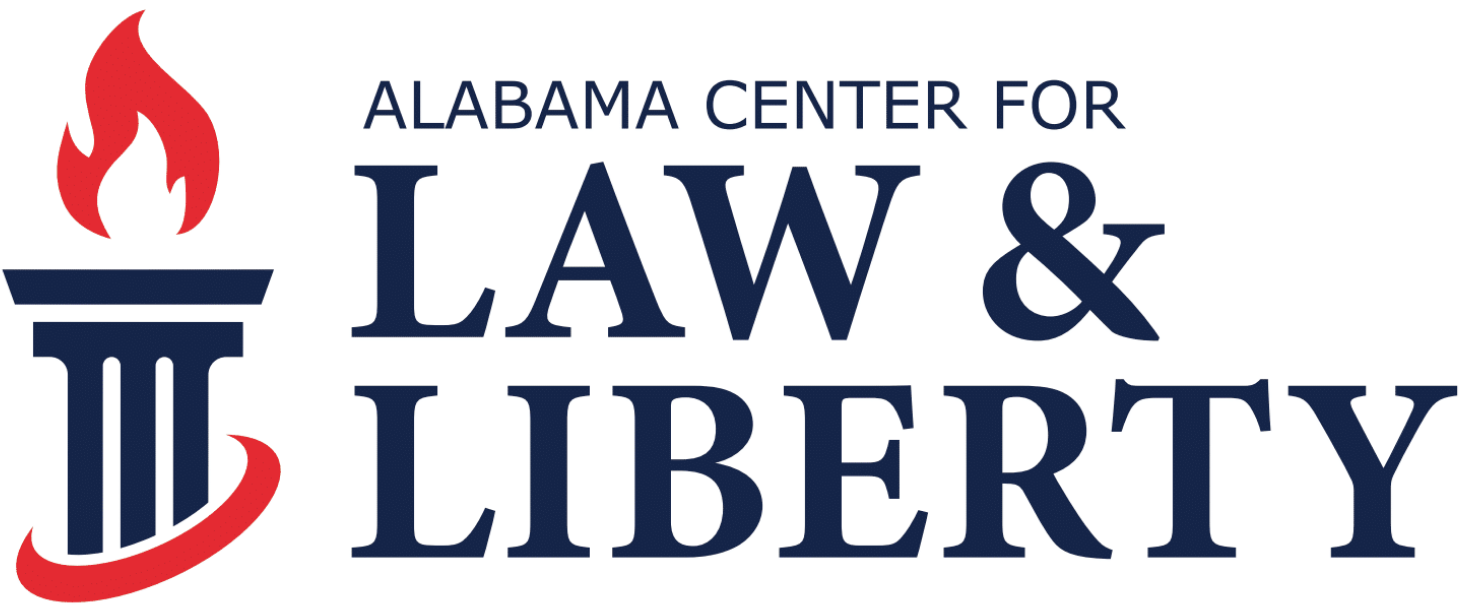Hanes
v.
Merril
ACLL Role:
Case Start Date:
Deciding Court:
Original Court:
Practice Area(s):
Amicus
May 19, 2021
Alabama Supreme Court
Montgomery Circuit Court
Limited Government
CASE SNAPSHOT
After the 2020 elections, many Americans questioned how secure our country’s voting system really was. In May 2022, two candidates for Governor filed a lawsuit claiming that Alabama’s electronic voting machines had not been properly certified as the law requires. The gubernatorial candidates eventually dropped out, but a public-interest group and individual citizens remained on to press the case. The trial court eventually threw their lawsuit out, arguing that the voters did not have standing. The plaintiffs appealed, and ACLL filed an amicus brief supporting them.
STATUS
ACLL filed a friend-of-the-court brief at the Eleventh Circuit on November 10, 2022.
FOR THE MEDIA

CASE SUMMARY
Case Background
After the 2020 elections, it was reported that about 1/3rd of Americans believed that our election system was not secure. As Texas v. Pennsylvania pointed out, the swing states that voted for President Biden voted in his favor because the states did not comply with their own laws. Between this and regular fears of hacking the voting machines, many Americans questioned whether their states’ methods of counting votes were truly secure or not.
In May 2022, gubernatorial candidates Tim James and Lindy Blanchard sued the Alabama Secretary of State, claiming that Alabama’s voting machines had not been properly certified as secure and requesting an audit. When James and Blanchard dropped out, Focus on America and individual voters remained as plaintiffs. They made a prima facie case that Alabama officials had not followed the law in certifying our voting machines. The crux of the argument is that they had failed to prove that the machines could not be connected to the internet.
The trial court threw out their lawsuit shortly before the November elections, reasoning primarily that the plaintiffs did not have standing because they had not proven they had been harmed. The plaintiffs appealed to the Alabama Supreme Court. ACLL filed an amicus brief supporting them, arguing that the Alabama courts had construed the doctrine of standing too narrowly and should correct that problem.
The Doctrine of Standing
For the non-lawyers reading this page: standing is a legal doctrine governing who can bring a lawsuit. For instance, if you witness two of your neighbors getting into a fistfight, do you have the right to sue the one who started it? No, because your rights were not violated. The lawsuit would be between the party who allegedly had his rights violated and the one who allegedly violated them.
In 1992, the U.S. Supreme Court held in Lujan v. Defenders of Wildlife that in order to have standing, one must show that (1) he has an injury in fact, which is a concrete and actual invasion of a legally protected interest, (2) there is a causal connection between the injury and conduct complained of, and (3) it must be likely that a favorable court decision can redress the decision. The Alabama Supreme Court later on adopted this test for state courts as well. While on its face this test may seem reasonable, it has been used to throw out many meritorious lawsuits by being hypertechnical about the injury requirement. For instance, when COVID hit, the Alabama Supreme Court threw out a lawsuit on standing grounds when a group of citizens challenged Governor Ivey’s mask mandate. Despite the fact that the mask mandate came with criminal sanctions, the court reasoned that because nobody had been threatened with arrest or prosecution, the plaintiffs did not have standing. The result is that the law-abiding citizens of Alabama had to follow unlawful orders or put up with the chief executive of the state threatening to prosecute them with no way to bring a challenge to the mandate’s constitutionality.
Over the last two years, prominent conservative jurists, such as U.S. Supreme Court Justice Clarence Thomas and U.S. Court of Appeals for the Eleventh Circuit Judge Kevin Newsom, have argued that Lujan does not fit with the Constitution’s original meaning. In thorough historical analysis, Thomas and Newsom have argued that injury-at-law, not injury-in-fact, was the constitutional standing requirement. ACLL filed a brief showing the Alabama Supreme Court these arguments and also argued that the original understanding of the Alabama Constitution aligns more with Thomas and Newsom’s views than Lujan did. Under that framework, the plaintiffs would certainly have standing. Alabama’s voting laws are designed to protect them, and therefore if the voting machines are not properly certified, the citizens’ votes may not count.
The Importance of Secure Elections
As the lawsuit went on, the Alabama Secretary of State backtracked on his initial claim that the machines could not be connected to the internet. The machines send a preliminary count of the votes to the Secretary of State’s office in Montgomery, which could not be done if they could not connect to the internet. The plaintiffs presented expert testimony that such internet communications are not merely one-way. Instead, if data can be sent, then the machines can be hacked.
While ACLL is not necessarily against using machines to count the votes, security is of the utmost importance. Failing to secure the votes is like entrusting a bank with people’s money but leaving all the money out on the tables so that anyone who walks by can grab it. While that system may not necessarily show that theft has occurred, it does prove that theft is easy and should warrant an investigation into whether it has occurred. If the machines that can count the People’s votes are susceptible to being hacked, then there is no way of guaranteeing that the People’s rulers were really their choice.
Importance to Limited Government
The right to vote is one of the most essential aspects of limited government. By giving the People the right to choose their rulers, the Constitution and the laws ensure that we live up to our Declaration of Independence’s ideal: that our government derives its just powers from the consent of the governed. Because this right is so important, we need to ensure that election security is intact so that our elections are decided by the People alone and not by those who engage in voter fraud.
Alabama Center for Law & Liberty 2213 Morris Ave, Floor 1 Birmingham, AL 35203 256-530-0519
The Alabama Center for Law and Liberty is Christian non-profit law firm.
©Alabama Center for Law & Liberty. All rights reserved.
